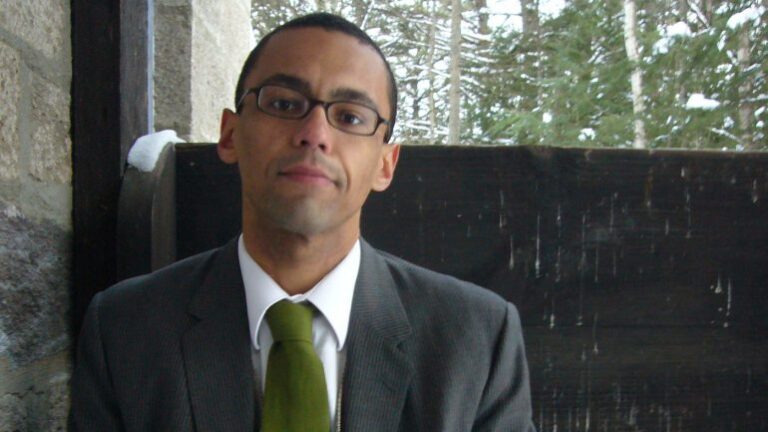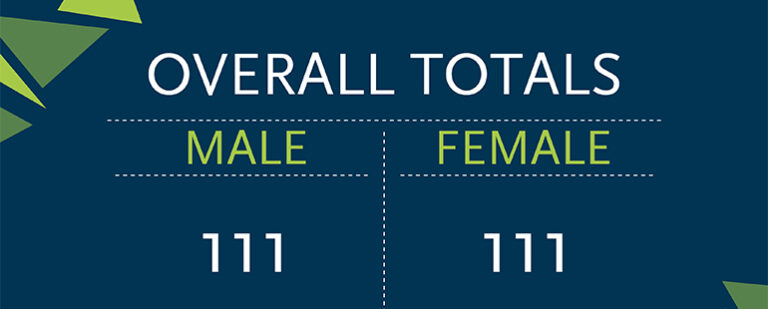An Ancient Technology: Using Greek Tragedies to Heal Present-day Trauma
Thousands of years before genetic research, MRIs, CAT scans and X-rays, we had theater. Not as entertainment, but as technology. That’s the claim of Bryan Doerries’ Outside the Wire, a theater company that brings charged readings of ancient Greek plays to communities who’ve experienced trauma. They believe these ancient plays serve as a communal gateway to healing the personal wounds inflicted by a violent culture.
In late October, I found myself attending a reading of Euripides’ play, Hercules at the Brooklyn Public Library. Actors Paul Giamatti, Jeffrey Wright, singer Ashanti, and city council member Jumaane Williams sat casually at a table at the front of the crowded room. After a brief introduction to the scene, the actors read aloud from the pages in front of them. The story is this: Hercules, returning from war, finds his own home under siege. He responds in the only way he knows how: with violence. He slaughters the strangers in his home, but then, struck by what’s called madness, his violence turns on those he loves best. He kills his wife, his children, and collapses to the floor. His father is the only surviving witness to the crime; his best friend, Theseus, breaks the news to Hercules of what he has done. The reading was surprisingly brief, only about thirty minutes. Afterwards, the readers disappeared, replaced by community panelists who shared their responses to the play. These panelists talked about the way the play reminded them of the pain and shame of domestic violence, the devastation of gun violence. When they were finished, audience members were invited to share their own response.
And to my astonishment, they did. Teens stood to stammer that they’d seen their own family members come home from prison, from war, filled with rage; mothers wept about the uncontrollable violence of their sons and daughters. People of all ages, all backgrounds, talking before the microphones could reach them, their words coming urgently, released by something in the room.
Words alone don’t convey an experience like this one. Just as it’s impossible to fully describe a traumatic experience, no matter how painstaking the description, someone who hasn’t been there won’t fully understand what it was like. But these 2,500-year-old plays convey emotional experiences shared by many today. As Doerries writes in his book, The Theater of War, “tragedy was, and is, a powerful tool for creating positive change, one whose vast and untapped potential for propagating healthy responses to stress remains wholly underestimated.”
A month later, I followed Outside the Wire to the National Guard complex in Columbia, South Carolina. In a small auditorium, the company read scenes from Sophocles’ Ajax, part of the company’s “Citizens and Soldiers” tour, to an audience of military men and women. As I’d recalled from Hercules in Brooklyn, the actors (Brendan Griffin, Marjolaine Goldsmith and Chris Henry Coffey) rendered the text with intense emotion. The story: Ajax, after years of warfare, loses his best friend, the warrior Achilles, to battle. He then loses Achilles’ armor to the skilled language of another soldier. Ajax returns home to his concubine Tecmessa and his son Eurysakes, but home is unbearable. Ultimately, he takes his own life.
Afterwards, the actors were replaced by a three-person panel: SFC Charles Boone, combat veteran; Lisa Mustard, MLFT with the SC Military Department; and Lindsay Carter, a State Behavioral Health Officer. The counselors related to Tecmessa’s fear, their powerlessness to help, their own dark places. The sergeant recounted an incident that took place in 2004, a terrible act of violence that left him spiraling alone in “a very dark place . . . My wife didn’t understand. I was the protector. I couldn’t let them down. I was in charge of those kids. I brought them home—minus one. But I left myself there.”
It couldn’t have escaped anyone’s attention that there were more than a few generals in attendance. They said little, but their presence may have given, as it once did in ancient Greece, a kind of permission that dissolves hierarchy. “Not just transcends it,” Marjolaine Goldsmith insisted. “Dissolves it. I think that’s the ancient technology. It’s not about experts. It’s about people experiencing things together. And about being experts because they’ve experienced it in the first place. They’re experts on their community. That itself dissolves hierarchy. It’s empowering the individual.”
Goldsmith, who read the role of Tecmessa, is Doerries’ “right hand” in the company. She first encountered Doerries’ work through The Theater of War and was so moved she immediately wrote him a letter, pleading for the opportunity to work with him. When I mentioned that I was intrigued by the way Doerries referred to their work as a public health campaign, Goldsmith exclaimed, “And about time! I think all the projects (Outside the Wire currently has more than twenty-five projects, including Theater of War), there’s something inextricably linked between that kind of communal experience and public health that we maybe don’t have a space for that. The reason these things are hard to talk about it because we haven’t, and creating that kind of platform is the biggest call to action.
“I mean imagine if we talked about more stuff. We’ve been intensely divided as a nation. Every incident that happens, everything…just makes me want to work harder. Because to me, the silence hasn’t worked. I’ll give PTSD as an example, because that’s obviously what started Theater of War. We have been calling it something different every generation. And now, in our generation, we’re calling it moral injury instead of PTSD, because if you call something a disorder it’s stigmatized rather than an authentic reaction to extenuating circumstances which every trauma is. If we can talk about it without stigma, in the collective setting of seeing your favorite actor bring something to life, it’s, a) not clinical, and, b) a different way of engaging with those things, fostering dialogue.”
“Cathartic?” I ask.
“Exactly! I call the classics an exercise in catharsis. It’s like a workout.”
As the discussion was drawing to a close, a Deputy Adjunct General rose to say that every soldier’s life that’s lost, “no matter how it’s lost, is a failure on our part. Whether it’s lost on the battlefield abroad due to enemy fire, or in your own home.”
I asked Goldsmith about that. She replied, “That’s the Soldier’s Creed. I will not leave a fellow soldier behind. And if you take that oath and you don’t follow through with it, it’s a violation of the oath. I think that’s a hyperbolic example of what we should do for each other as citizens. That it’s your job, as a citizen, to serve this country. I know that, for me, that doesn’t take any military form, except for these parameters, but I think that engagement is what we’re after. That we find a way to include and to protect, our people. And I feel like I can serve America, this country, as a citizen in that capacity.”


